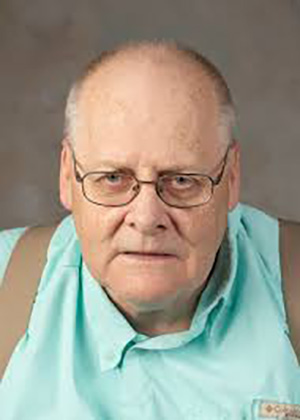By Greg Markley
In October 2000, Sen. John Ashcroft of Missouri, a Republican, was fighting for reelection against Democratic Gov. Mel Carnahan. Just weeks before the election, Carnahan and two others were killed in a plane crash. It was too late to remove Mel Carnahan’s name from the ballot, but it was agreed that his widow Jean would be appointed to the Senate seat and serve until a special election.
Governor Carnahan won 51%–48%, becoming the first posthumous senator-elect. John Ashcroft took the embarrassing defeat with grace. He said, “the will of the people has been expressed with compassion,” and that he “hope[s] the outcome” comforts Mrs. Carnahan. A Reason.com article said Ashcroft “did not challenge the results, though he had various procedural tacks he could have taken.”
I evaluate the term “October Surprise” to mean two things, in political science jargon. First is to reference a dramatic development in a campaign in the fall that is unrelated to opposition research. Carnahan’s untimely death is one; a natural or terrorist-related disaster is another. It relates to the upcoming elections because the candidates’ reactions and leadership under the crisis might determine his or her success.
Second is what is more commonly tagged as an “October Surprise,” although a September surprise could have an impact too; both are just weeks from general elections that may have the surprises as an undercurrent. These surprises are crafted by campaign strategists who see advantage in last-minute news stories, the more scandalous and outrageous the better.
I learned back in 1982 that one must be careful when a juicy-looking story beckons you. As a young journalist at Fort Bliss, TX, I was hanging around a table tennis table when a player said, “I have been in international competitions, I am that good!” I said, “Really? That might make a good sports story for our newspaper.” Double-checking, I said, “Give me a little more information, buddy.” He replied: “I played with a couple of Germans at an Air Force base.” Uh, oh. That’s not an International Competition, that’s just ping-pong pickup games. It’s like claiming you beat Dustin Johnson in a golf match, but it was only in miniature golf.
That table tennis story is how most October surprises are; they don’t hold up when you ask second and third questions. This takes us to the controversy involving Hunter Biden, the former vice president’s wayward son. He and his father are being investigated by the Senate Homeland Security Committee because there were rumored meetings between the former VP with Ukrainian energy company executives that might have involved financial misdeeds.
The New York Post released to senators emails that allegedly said former VP Biden himself traded money in exchange for firing a nosy prosecutor. But why did Sen. Ted Cruz say, “No one cares about Hunter Biden”? Why did GOP consultant Karl Rove argue that the economy matters more than the Biden story? “This is major corruption,” President Trump said. “This has to be known about before the election.”
“Even if you do believe there is something to Trump’s allegations, which rely on plenty of innuendo,” wrote Aaron Blake in The Washington Post, “they haven’t really connected (Joe) Biden to anything objectionable that his son Hunter Biden might have done, and the vastness and lack of specificity in Trump’s allegations make it only more difficult to launch a quickly executed and focused investigation.”
President Trump, win or lose, will be president until Jan. 20, 2021. Let’s see if he pursues the Hunter/Joe Biden story in the months or years he has left as president. If the subject never comes up, we will know it was a typical “October surprise” that did not gain votes from Undecideds. Yet, October surprises can be used effectively to energize one’s electoral base, so they do have some utility.
Fewer than six weeks from the 2000 presidential election, both Republican candidates were shown to have Driving Under the Influence records from decades past. As I said above, last-minute leaks of negative information as part of an October surprise seldom work.
Most people understood it was long ago and the George W. Bush and Richard B. Cheney of 2000 were not the same individuals who shamed themselves as young adults. Bush pleaded guilty to Operating Under the Influence, paid a $150 fine and had his privileges briefly revoked in Maine. Cheney had two DWI convictions in Wyoming and was hit with a 30-day driver’s license suspension.
As noted above, U.S. Sen. John Ashcroft, a decent man, handled his election loss to a dead man adroitly and compassionately. In 2001, Ashcroft became U.S. Attorney General in the George W. Bush administration. His challenger in the Missouri Senate race had no comment, as dead elected men tell no tales.
Greg Markley has lived in Lee County for 20 of the past 24 years. An award-winning journalist, he has Masters’ in education and history. He taught political science as an adjunct in Georgia and Alabama.

